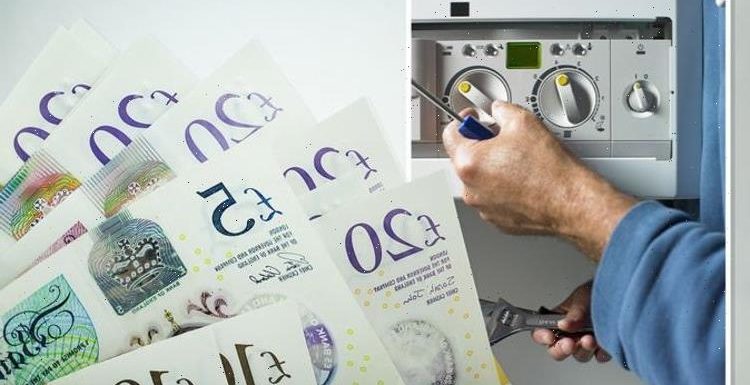
Rishi Sunak grilled by Neil on 'green boiler' transition
We use your sign-up to provide content in ways you’ve consented to and to improve our understanding of you. This may include adverts from us and 3rd parties based on our understanding. You can unsubscribe at any time. More info
A new report published by the non-profit Energy and Utilities Alliance has highlighted the exorbitant costs households face in the push for cleaner, greener homes. As part of the Government’s commitment to a net zero economy by 2050, Britons are being encouraged to do away with their polluting gas boilers in favour of carbon-free alternatives. One such alternative are heat pumps take energy from the outside and transfer it into heat that can be circulated around the home.
Although a relatively new introduction in the UK, heat pumps have garnered a lot of sympathy from environmentalists because of their efficiency and reduced emissions.
And yet, according to the EUA, households that opt to replace their gas boilers with heat pumps potentially face a five-fold cost increase, when compared to hydrogen-ready boilers.
In its report, the trade association claimed households can presently expect to pay up to £15,000 for the transition, depending on their household.
The eco-friendly boilers can range in price anywhere from £6,000 to £27,000 and more, and that does not include a number of other upgrades and hidden costs involved.


The cost of installing hydrogen-ready boilers, on the other hand, would likely go up to £3,000 per household.
According to Mike Foster, Chief Executive Officer, the choice between the two options is obvious: hydrogen-ready boilers are the way forward.
He told Express.co.uk: “The problem that the vast majority of homes face, is that if we go down the route of installing heat pumps, to get the effectiveness of heat pumps most homes will have to undergo significant upfront costs in terms of meeting energy efficiency requirements and new heat distribution systems.
“So, new radiators, possibly new pipework, and almost certainly a hot water cylinder where homes don’t have one at the moment.
“And those are significant upfront, one-off costs that add up to a sum of money that, frankly, most households can only dream of having at their disposal.”
Conservative MP and host clash over deadline to ban gas boilers
The disparity between the two options comes down to the additional energy efficiency measures and hidden costs associated with heat pumps.
These can include the need to install hot water cylinders and new radiators, and in a worst-case scenario, new internal pipework.
By some estimates, the average UK household emits about 2.7 tonnes of planet-warming carbon dioxide (CO2) every year just from heating their homes.
And the nation’s 29 million homes contribute about 14 percent of the UK’s total emissions.
It is clear, therefore, why the Government is keen for people to upgrade their homes with new, carbon-free equipment.


Last month, ministers published the Heat and buildings strategy.
The document set out the Government’s vision for decarbonising the UK’s household, public, commercial and industrial sectors on the road to net zero.
It has been proposed that by 2025 the Government will help heat pumps reach cost parity with gas boilers with a reduction between 25 and 50 percent.
Towards this goal, ministers have proposed offering consumers £5,000 grants that will help offset the costs of installing heat pumps.
However, Mr Foster thinks the Government has an opportunity to instead divert its focus towards hydrogen technology.
Hydrogen boilers work by burning hydrogen instead of natural gas.
Hydrogen does not produce any greenhouse emissions and can be easily produced using renewable energy sources such as wind and solar.
Mr Foster said: “A straightforward boiler swap is the cheapest option around and if all you have to do is take one boiler off the wall because it’s broken and put a replacement boiler on the wall, then you can probably get that for about £1,500 to £2,000.”
If customers chuck in a few additional measures to test and improve the system’s efficiency, the cost may rise to about £3,000, which is still five times cheaper than heat pumps.
Source: Read Full Article